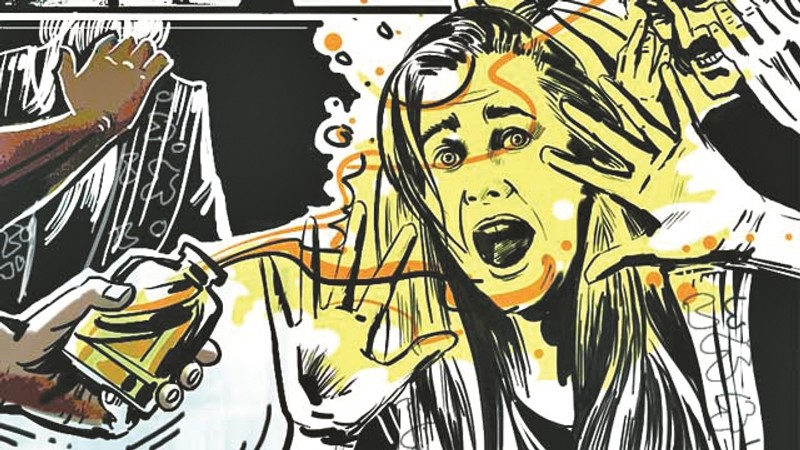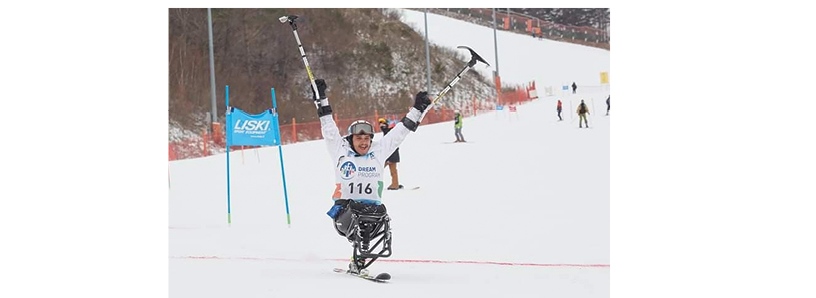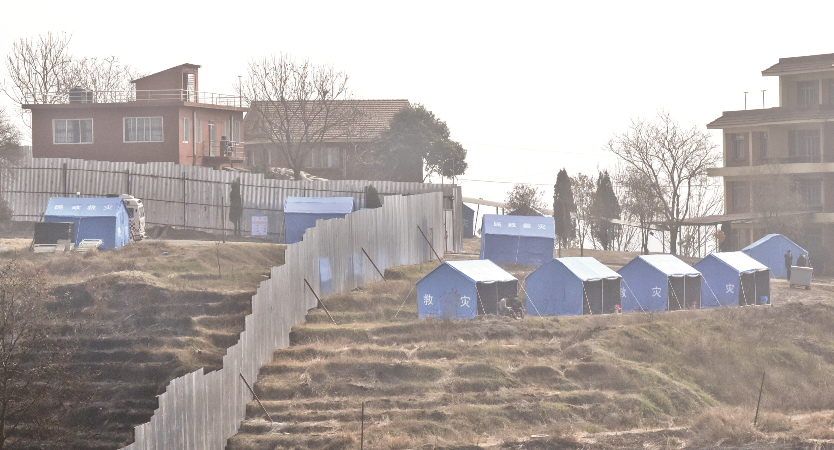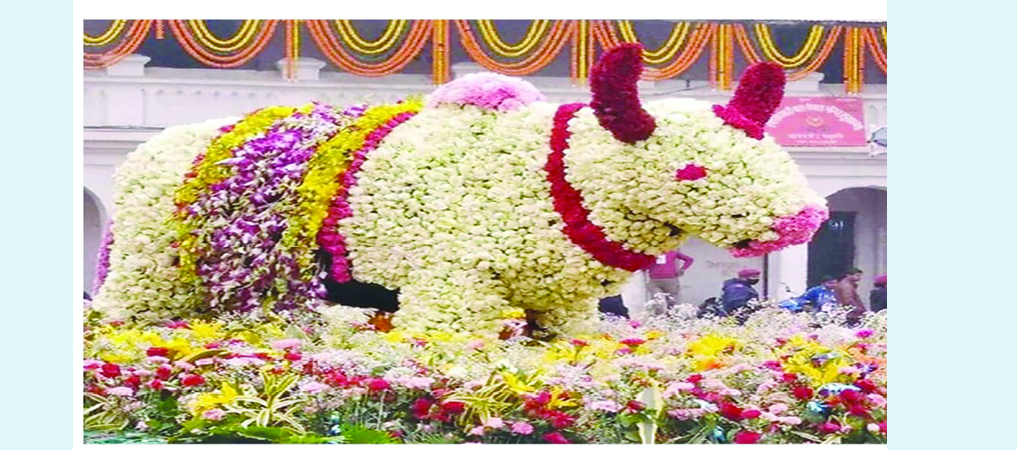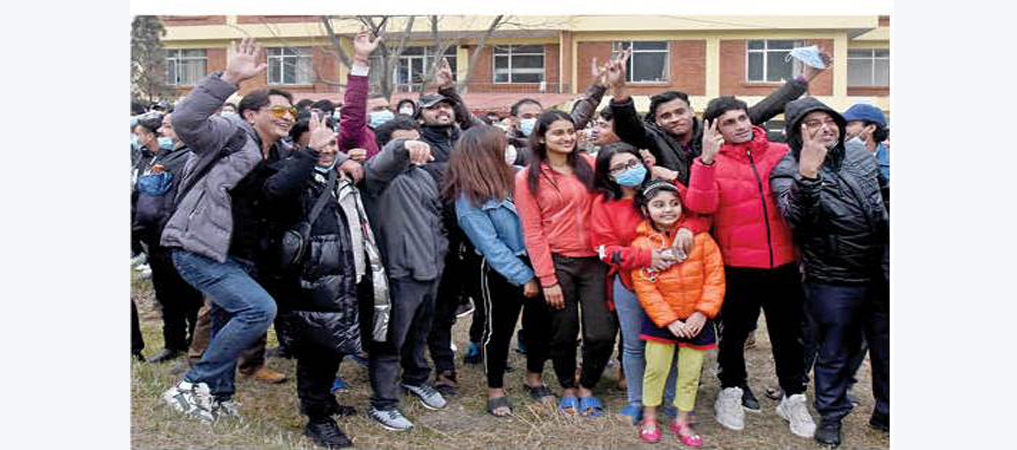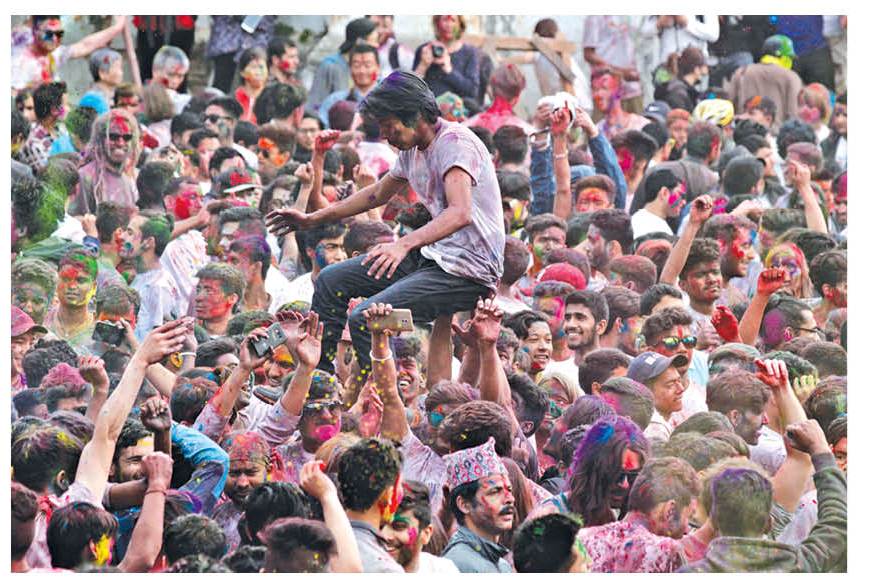Pollution haze hazardous for health: Experts
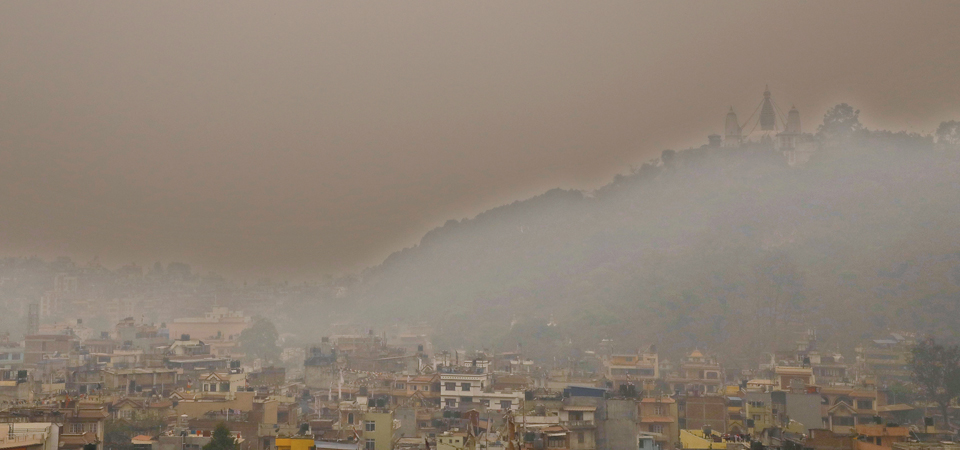
By Sampada A. Khatiwada
Kathmandu, Mar. 31: It has been five days since a hazy layer of smog has blanketed the Nepali skies, from major cities to remote corners of Jumla, Rara and Dhankuta, taking air pollution to alarming levels.
In light of the persistently-high air pollution, the Department of Environment has been urging everyone to take precautionary measures to keep themselves safe from hazards of pollution.
Environmentalists and health experts have been warning that the smog could imperil the public health at a time when the nation is already saddled with COVID-19 pandemic.
Bhusan Tuladhar, an environmental expert, said, “The hazardous smog spread across the nation has put public health in jeopardy. Time has come for the government to take effective measures to ensure that people are safe from the dangerous smog.”
Similarly, Dr. Rabindra Pandey, a public health specialist, said, “As the smog might persist for a few more days, the micro-particles present in the polluted air might have a damaging impact on respiratory and circulatory system.”
“Thus, we should desist from morning and evening walks, and not step out of the house unnecessarily. Likewise, the harmful emissions must be minimised by avoiding use of air conditioners, plastics, firewood and vehicles as much as we can,” added Dr. Pandey.
He also recommended everyone to consult doctors immediately in case of allergic reactions like eye or skin burn, or difficulty in breathing.
Meanwhile, the department has also warned that the smog could continue for few more days.
Indu Bikram Joshi, deputy director general and spokesperson for the department, said, “The increasing air pollution might pose grave risk to public health. Thus, I request everyone to stay safe and opt for safety measures to remain unscathed from the pollution.”
“Especially children, senior citizens, people suffering from respiratory and cardiovascular diseases must stay safe from the pollution. They should not step out of home for a few days,” said Joshi. “It would be in their interest if they didn’t step out at all. They must use masks if they have to go out.”
Considering the increasing air pollution, the department has requested the general public to not dispose wastes haphazardly and not burn firewood under the open sky.
Moreover, Joshi said that the Air Quality Index (AQI) would not improve unless there’s a significant change in weather or a heavy rainfall.
“However, we have been mulling to recommend the government to impose odd-even rule on vehicles to minimise emissions. Educational institutions across the nation have already been shut for a couple of days to keep the children safe,” added Joshi.
According to the department, Ratnapark area measured 252 AQI on Tuesday. Likewise, Bhainsepati, Bhaktapur and Kritipur area recorded 173, 164 and 160 respectively.
Recent News

Do not make expressions casting dout on election: EC
14 Apr, 2022
CM Bhatta says may New Year 2079 BS inspire positive thinking
14 Apr, 2022
Three new cases, 44 recoveries in 24 hours
14 Apr, 2022
689 climbers of 84 teams so far acquire permits for climbing various peaks this spring season
14 Apr, 2022
How the rising cost of living crisis is impacting Nepal
14 Apr, 2022
US military confirms an interstellar meteor collided with Earth
14 Apr, 2022
Valneva Covid vaccine approved for use in UK
14 Apr, 2022
Chair Prachanda highlights need of unity among Maoist, Communist forces
14 Apr, 2022
Ranbir Kapoor and Alia Bhatt: Bollywood toasts star couple on wedding
14 Apr, 2022
President Bhandari confers decorations (Photo Feature)
14 Apr, 2022





